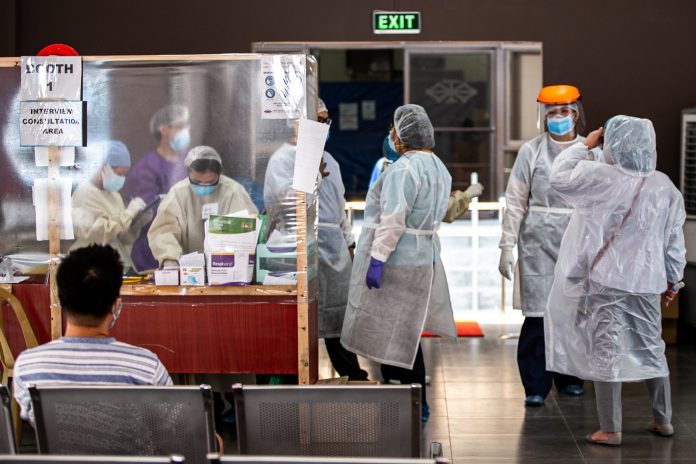The World Health Organization (WHO) urged the Philippines on Tuesday, July 14, to boost its contact tracing efforts to arrest the rising transmission of the new coronavirus disease.
Dr. Rabindra Abeyasinghe, WHO’s Philippine representative, said the country needs “a speedy contact tracing” while it capitalizes on its improved testing capacity.
“It is worrying that there is a continuing transmission … While we use the increased testing capacity, the government must also arrest further spread,” said Abeyasinghe in an online forum.
He said it is imperative to determine the events and activities where the transmission is happening and immediately arrest the spread of the disease.
From nearly 53,000 cases last week, the Philippines has recorded 57,006 confirmed COVID-19 cases with 1,599 deaths and more than 20,000 recoveries on July 13.
Dr. Abeyasinghe said the rising reported confirmed COVID-19 cases “is actually a good thing,” adding that “it is a reflection of the country’s increased capacity to test more samples.”
“We are aware of the increasing transmission in the [nation capital region]. It is not something unique to the Philippines,” he said.
He noted that many countries that relaxed the restrictions to allow the economy to recover have experienced a rise in cases.
Dr. Abeyasinghe said the solution to the rising numbers of infection “is not locking down a large geographical area” because it will hurt the slowly recovering economy.
He said early detection, isolation of infected individuals, and strengthening the contact-tracing method are the best way to suppress further transmission and control the rising number of hospital admissions.
The WHO official backed the government’s pronouncement that mild or asymptomatic COVID-19 patients “must be managed at government’s quarantine facilities” instead of staying at home or admitting them in hospitals.
Globally, the coronavirus pandemic has already infected more than 30 million people and killed at least 570,000 individuals in 215 countries since its onset on December 21, 2019.









